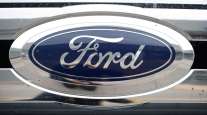Ford is Arriving With a Solution to Miami’s Terrible Drivers: Eliminate Them

Can autonomous cars possibly be worse than Miami’s current drivers? We’re about to find out. On Feb. 27, Ford announced it had chosen Miami-Dade to be the first large-scale test site of its self-driving vehicle fleet.
The cars will be traveling throughout the county to test their readiness to handle a challenging urban environment like Dade — and give residents a sense of what the future of transit could look like. Though they will be controlled by computer, the cars will feature a human “safety driver” as backup.
Miami Mayor Carlos Gimenez has previously hinted at self-driving cars as a solution to solving the county’s transport woes. In a new interview, Gimenez said he foresees a future in which autonomous vehicles combine with ride-sharing operators to create a scenario that makes owning a car less attractive for Miamians — taking more cars off the road.

Ford
“The new generation absolutely wants less and less to drive their own vehicle,” he said. “Even someone in my generation, if I can with a high degree of certainty summon a car that safely takes me where I want to go (and) that reduces my cost by 50%, I’m doing that.”
Does that mean long-standing efforts to expand mass transit will take a back seat?
Said Gimenez: “We’re still committed to mass transit. This doesn’t take away from that. This is giving people options.”
RELATED: Self-driving cars with no in-vehicle backup driver get ok for California public roads
RELATED: Ford and Lyft team up to put driverless cars on the road
Despite Miami’s notorious traffic, the Magic City was chosen over about nine competitors because of its weather, its variety of driving environments — from its densely packed downtown to its more residential exurbs — and the receptiveness of city officials to the new technology, said Sherif Marakby, Ford’s vice president of autonomous vehicles and electrification.
“Miami had a really nice composition, and the city itself and the openness of (Mayor Gimenez) and the city to this solution was a big factor in it,” he said.

Ford
The testing fleet will be relatively small — Marakby wouldn’t give an exact number — and shouldn’t impact already messy traffic, he said.
The project will come at no cost to taxpayers, and Ford is assuming full liability for anything that goes wrong during the project, which will have an indefinite run time.
Ford will be rolling out two types of vehicles, which will be housed at an undisclosed depot in Wynwood. The first will come equipped with mapping technology and will have the task of learning to adapt to Miami’s urban environment, with the goal of improving Ford’s wider autonomous fleet.
The second fleet will be tasked with delivering the classic delivery cuisine: pizza. Ford is partnering with Domino’s to test how people will react to getting their food by what is essentially a rolling robot. Ford is also partnering with delivery service Postmates to bring other goods to residents here.

Ford
While Ford’s cars will not be taking passengers in this early test, Marakby hinted that they could do so in the future. Ford has already formed a partnership with Lyft.
The project was borne from Gimenez’s visit to the 2017 Consumer Electronics Show in Las Vegas, where he spotted a Ford vehicle with no steering wheel or pedals. He also found out that Ford was partnering with five other cities on its Ford Chariot shuttle service. The mayor’s office spent the rest of the year recruiting Ford to Miami, and a final decision was made two months ago.
Gimenez said Dade residents should see Ford’s project as a way to prepare for what’s to come.
“We need to start getting used to seeing vehicles with no driver in them picking up passengers. That day is coming a lot sooner than people think.”
Distributed by Tribune Content Agency, LLC





